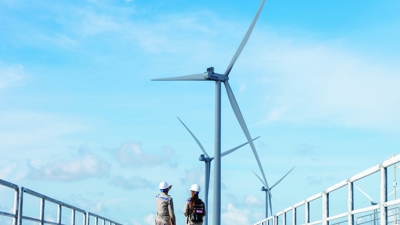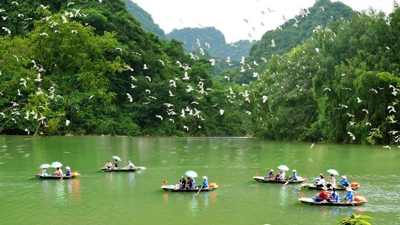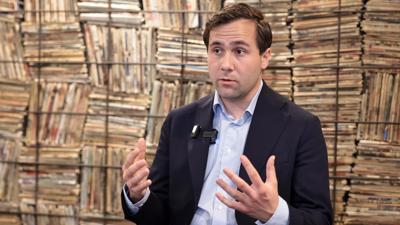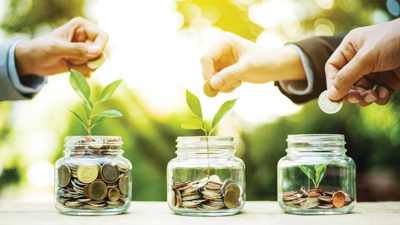Green transition on the way up
Vietnam Economic Times / VnEconomy sought the opinions of various stakeholders on Vietnam’s move towards a green transition and sustainable development.
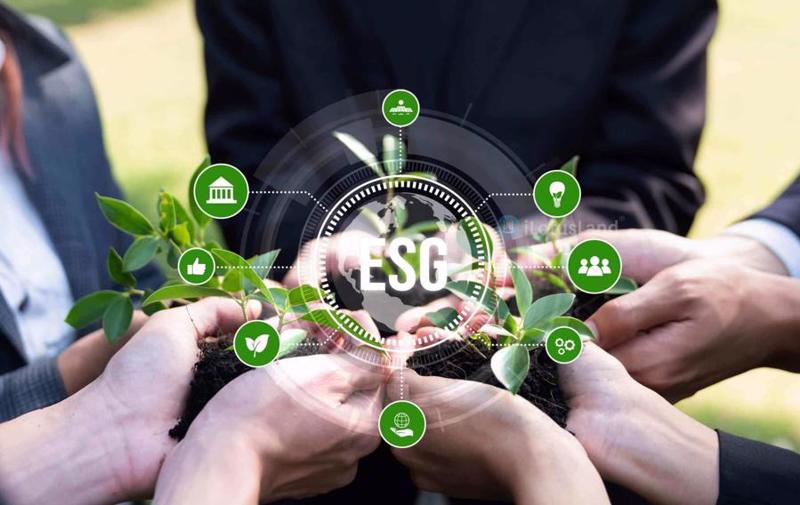
Ms. Thai Huong, Founder and Chairwoman, TH GroupStrategy Council
Vietnam hosting the P4G Summit 2025 is a clear testament to the country’s increasingly prominent role in global efforts to promote green growth and sustainable development. In particular, this year’s theme of “Sustainable and People-Centered Green Transition” resonates fully with the development philosophy the TH Group has adhered to since its inception.
We firmly believe that true development is only sustainable when it is based on “Mother Nature”, respecting the laws of nature and putting people at the core. That’s why we have built acomplete, closed-loop high-tech agricultural ecosystem, where advancements in AI, global big data, the green economy, and the circular economy are applied thoroughly.
Mastering technology and data not only helps TH optimize costs and improve productivity, but more importantly enables us to create clean, entirely natural products that meet international standards, earning the trust of domestic consumers and being embraced globally. This model has helped us maintain double-digit growth rates, even during difficult periods such aseconomic crises and global pandemics.
More importantly, this is a model that contributes to shaping asustainable agricultural economy and a green and circular economy, restoring the greenness of the land and nature, using resources efficiently, and simultaneously creating sustainable livelihoods for farmers. As a result, farmers are no longer outsiders but become a key link in the modern value chain.
Today, the green economy, combined with innovation, is not just a trend but truly brings practical and long-lasting benefits. However, for this trend to spread widely and have profound effects, the role of public-private cooperation is extremely important.
First, we need strong, coherent, and appropriate policies to lead businesses and encourage “pioneers” in each field.
Second, we need to promote the building and sharing of data between businesses. Linking and sharing experiences is the shortest path to integrating technology into production and business processes, creating an ecosystem of mutual learning and development.
Third, economic development must go hand-in-hand with improving the quality of life and physical well-being of the people. Investment in high-tech agriculture, the green economy, and the circular economy not only brings clean, nutritious products but also strategically invests in preventive healthcare, public health, future generations, and national sustainability.
I believe that with the ambition to rise, with an innovative foundation, and the collaboration of the entire ecosystem,Vietnam will successfully seize the opportunities presented by Industry 4.0, realizing the goal of green growth and making strong strides forward into a “New era, The era of the nation’s rise”.
Ms. Le Thi Hong Nhi, Deputy General Director of Communications, External Affairs and Sustainable Development, Unilever Vietnam
In the context of Vietnam actively promoting green transition through progressive policies such as the National Action Plan for the Circular Economy, the Law on Environmental Protection 2020, and the Extended Producer Responsibility (EPR) system, we see this as the ideal time for the private sector to play an increasingly proactive and profound role in creating sustainable solutions.
One of the greatest challenges facing both the world and Vietnam is the issue of plastic waste. With strong determination, the Vietnamese Government has implemented a host of important initiatives, including the National Action Plan on Marine Plastic Debris Management, with the goal of reducing 75 per cent of plastic waste entering the oceans by 2030, and gradually eliminating single-use plastics in coastal areas.Vietnam is also the first country in ASEAN to adopt mandatory EPR, requiring that producers and importers be responsible for managing the lifecycle of their products and packaging.
In response to the government’s call, since 2020, Unilever Vietnam has been a pioneer in collaborating with the Ministry of Agriculture and Environment to establish “Public-Private Collaboration (PPC) to Promote a Circular Economy for Plastic Waste” and many other sustainable development activities.
However, the green transition process still faces many barriers.The infrastructure for waste segregation at the source is not yet complete, recycling technology, particularly for flexible plastics, is still limited, while policies have not yet strongly encouraged the use of recycled materials. EPR, though a significant step forward, still requires adjustments to better support the domestic recycling industry.
To overcome these challenges, we hope that Vietnam can accelerate technological innovation and support local innovators through multilateral cooperation models between educational institutions, startups, small and medium-sized enterprises (SMEs), and global corporations.
At the same time, it is essential to strengthen the policy framework to develop a high-quality recycling industry, particularly by adding mechanisms to encourage the use ofrecycled plastics in EPR regulations to ensure stable outputs for the domestic recycling industry. The effective use of the Environmental Protection Fund from EPR fees is crucial to fund new technologies, support startups, and drive the application of creative solutions in the recycling sector. Investment in waste sorting and collection infrastructure at the source is also a vital foundation to build a sustainable circular economy ecosystem.
The journey to a green transition can not be led by one side alone; only when the public and private sectors truly accompany each other, with mutual commitment and joint action, can innovation become a practical driver for sustainable development.
Mr. Truong Sy Ba, Chairman and CEO, Tan Long Group
Green and sustainable agriculture is becoming an urgent requirement in the face of climate change impacts, market volatility, and shifting consumer trends. Future food security isnot just about quantity, but about being “Sufficient - Right - Sustainable”. In recent years, I have observed clear interest from our partners and customers in clean production processes that meet environmental, social, and governance (ESG) criteria or certifications for sustainable farming practices. I believe that investing in ESG and sustainable agriculture is an investment in the future, where product quality, consumer health, farmers’ rights, and the stability of ecosystems are all placed at the center.
In line with the global trend of green transformation, we proactively participate and accompany government and international organizations’ sustainable farming programs. Notable examples include the One Million Hectares of High-Quality, Low-Emission Rice project, led by the Vietnamese Government, or the “Transforming the Rice Value Chain to Combat Climate Change and Move Towards Sustainable Development in the Mekong Delta” project, funded by the Embassy of Australia in Vietnam and the Netherlands Development Organisation (SNV), in cooperation with the International Finance Corporation (IFC). This is a strategic direction aimed at creating modern agriculture that is climate-resilient and develops harmoniously with the ecological environment in Vietnam.
We do not follow a path that focuses on production volume at the cost of depleting resources for the future. Tan Long’s practical model is one of “from root to tip”, from production to finished products with traceability, ensuring quality control according to international integration standards.
Currently, Vietnam is facing a huge and transformative opportunity in the journey of food system transformation, opening the door to an era of sustainable, inclusive, and climate-resilient development. This is not only an inevitable global trend but also a driving force for Vietnam to redefine how we produce, distribute, and consume food in a greener, safer, and more efficient manner. If we take advantage of this moment, we can build an intelligent agricultural ecosystem that ensures food security, enhances the value of Vietnamese agricultural products in international markets, and improves the livelihoods of millions of rural people.
With the achievements from our business practices and production, along with our ambitious goals, we are committed to continuously striving to develop green and sustainable agricultural models, contributing effectively to the common goal of creating a sustainable and flexible food system for the future in the context of sustainable development trends in Vietnam.
Mr. To Dung Thai, Chairman of the Member Council, Vietnam Posts and Telecommunications Group (VNPT)
The world is undergoing a strong transformation, opening a new era where technology, the environment, and people develop harmoniously, all heading towards a green and sustainable future. In this context, green transformation and innovation are no longer strategic choices but have become prerequisites for countries and businesses to survive, grow, and establish their position on the global map.
Seizing this inexorable trend, we have not only chosen to participate but also proactively taken on the role of leading the green transformation and innovation process in Vietnam. With along-term vision, we see green transformation as the foundation for sustainable development, realized through the use of clean energy, reducing emissions, limiting pollution, and protecting the living environment.
In the field of information technology and telecommunications, this direction is embodied by the development of green infrastructure and smart infrastructure, such as energy-efficient data centers, renewable energy applications, and the integration of environmentally-friendly cloud computing solutions.
In line with Resolution No. 57 from the Politburo on breakthrough development in science, technology, innovation, and national digital transformation, we have identified three key tasks. First, to accelerate investment in research and development (R&D), focusing on strategic technologies such as AI, big data, the Internet of Things (IoT), 5G, and 6G, to create a foundation for innovation and enhance competitiveness.
Second, to build and deploy modern digital infrastructure, including 5G networks, large-scale data centers, and national digital platforms, to meet the needs of comprehensive digital transformation. Third, to develop a high-quality digital workforce through in-depth training and attracting domestic and international talent, ensuring the ability to sustainably implement technological strategies.
Sustainable development is not only a long-term vision but also a core strategy, demonstrated through specific actions and clear responsibilities towards the country and the future. We are committed to working alongside the government, international partners, and the business community to turn today’s aspirations into tomorrow’s reality in the journey of green transformation and innovation.



